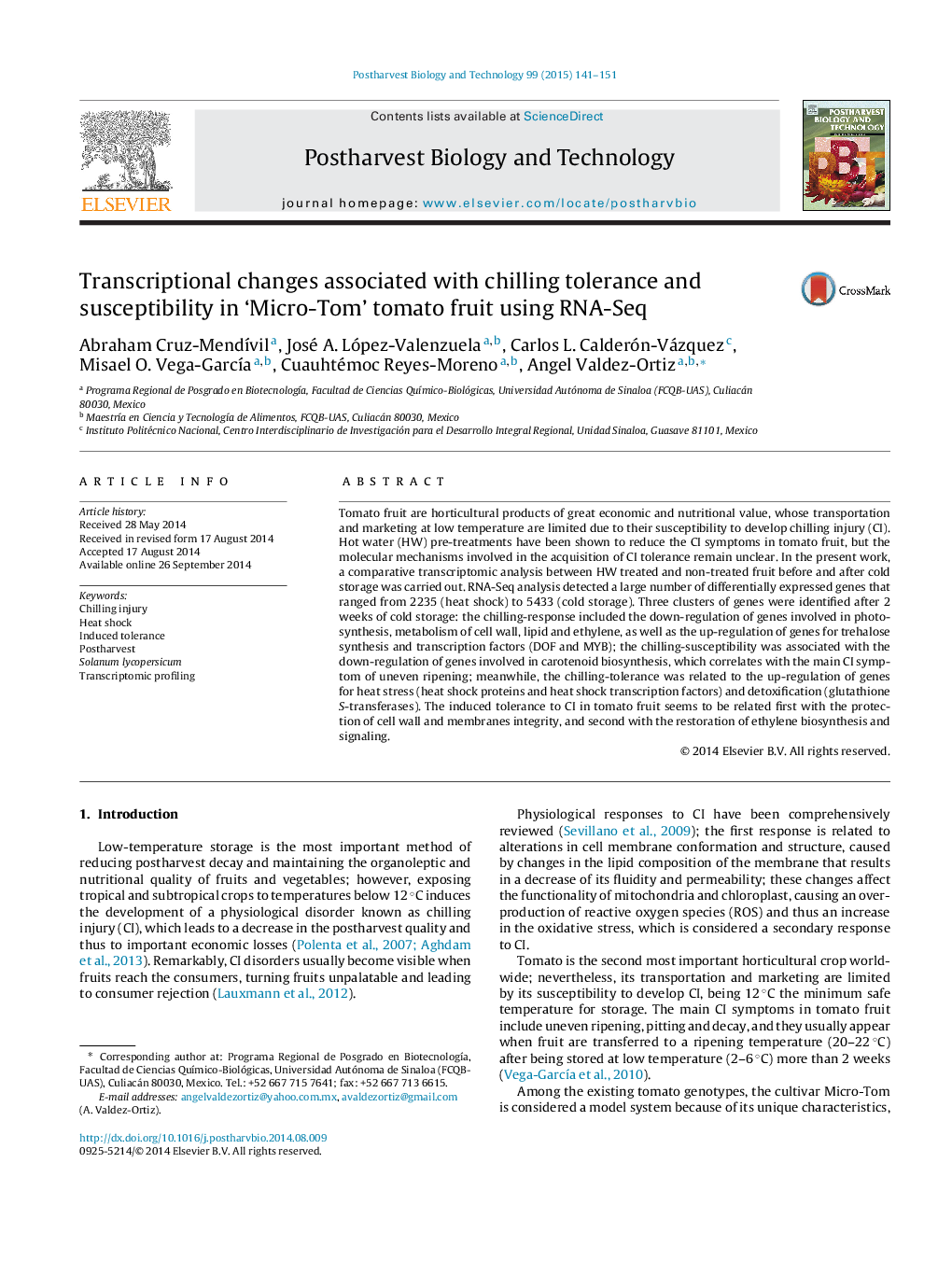| کد مقاله | کد نشریه | سال انتشار | مقاله انگلیسی | نسخه تمام متن |
|---|---|---|---|---|
| 4518129 | 1624995 | 2015 | 11 صفحه PDF | دانلود رایگان |

• RNA-Seq analysis of tomato fruit subjected to hot water treatment and cold storage.
• CI susceptibility involves up-regulation of dehydrin and thioredoxin genes.
• CI susceptibility involves down-regulation of ethylene and carotenoid biosynthesis.
• CI tolerance involves up-regulation of HSPs, GSTs and sugar metabolism genes.
• CI tolerance involves down-regulation of cell wall and lipid degradation genes.
Tomato fruit are horticultural products of great economic and nutritional value, whose transportation and marketing at low temperature are limited due to their susceptibility to develop chilling injury (CI). Hot water (HW) pre-treatments have been shown to reduce the CI symptoms in tomato fruit, but the molecular mechanisms involved in the acquisition of CI tolerance remain unclear. In the present work, a comparative transcriptomic analysis between HW treated and non-treated fruit before and after cold storage was carried out. RNA-Seq analysis detected a large number of differentially expressed genes that ranged from 2235 (heat shock) to 5433 (cold storage). Three clusters of genes were identified after 2 weeks of cold storage: the chilling-response included the down-regulation of genes involved in photosynthesis, metabolism of cell wall, lipid and ethylene, as well as the up-regulation of genes for trehalose synthesis and transcription factors (DOF and MYB); the chilling-susceptibility was associated with the down-regulation of genes involved in carotenoid biosynthesis, which correlates with the main CI symptom of uneven ripening; meanwhile, the chilling-tolerance was related to the up-regulation of genes for heat stress (heat shock proteins and heat shock transcription factors) and detoxification (glutathione S-transferases). The induced tolerance to CI in tomato fruit seems to be related first with the protection of cell wall and membranes integrity, and second with the restoration of ethylene biosynthesis and signaling.
Journal: Postharvest Biology and Technology - Volume 99, January 2015, Pages 141–151